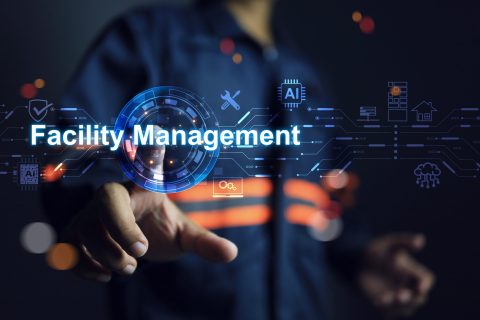- Why CERDAACWhy CERDAAC
- ProductsProducts
- SolutionsSolutions
- ResourcesResources
- CustomersCustomers
- CompanyCompany

Regulated manufacturers require strong facility management to be successful. These managers are responsible for ensuring smooth day-to-day operations, and they’re also tasked with improving efficiencies and saving costs. It’s a huge job requiring a unique mix of traditional and technological expertise to master. This is particularly true as your buildings, equipment, and processes become increasingly sophisticated as technology advances.
So, what are the qualities of an exceptional facilities manager, and how can you help them exceed expectations? We have tips.
With technology constantly evolving, the role of facilities managers is more critical than ever before. Traditionally tasked with overseeing the physical assets of an organization, such as buildings, equipment, and infrastructure, facilities managers now find themselves at the forefront of addressing a wide range of challenges, from sustainability initiatives to workplace safety protocols. As their responsibilities expand, facilities managers must adapt and evolve to meet the growing expectations placed upon them.
The modern facilities manager is no longer just an overseer of processes and tasks; they are strategic partners in driving organizational success. They are tasked with creating dynamic, adaptable workspaces that foster collaboration and productivity.
This may involve implementing innovative technologies and process automation. Facilities managers play a crucial role in ensuring the strategic and operational goals are met by implementing rigorous cleaning, maintenance, and upkeep protocols to meet legal, health, and safety standards.
They often source and oversee vendor contracts, manage budgets, and deal with any emergencies—all while supervising teams across different divisions and ensuring facilities meet applicable compliance and government regulations.
Overall, the facility manager ensures everything operates as it should be each day by performing daily inspections, completing preventative maintenance, and making repairs as needed.
Doing this job well requires a specific set of skills and qualifications.

What sets exceptional facilities managers apart from their peers? Beyond technical expertise and industry knowledge, exceptional facilities managers possess a unique blend of skills and qualifications that enable them to excel in their roles.
To accomplish all of this, facility managers may have a management certification, or they may have been mentored. In-house training and apprenticeships are excellent paths for high-potential candidates already excelling in other roles in a company.

As we look to the future, the role of facilities managers will only continue to evolve in response to shifting workplace dynamics and technological advancements. From the widespread adoption of remote work to the rise of sustainable building practices, facilities managers must embrace change and adapt to new realities.
One of the most significant trends shaping the future of facilities management is the growing emphasis on sustainability and environmental stewardship. As organizations increasingly prioritize corporate social responsibility and carbon neutrality, facilities managers are tasked with implementing efficient, renewable options, as well as waste reduction and other ESG initiatives.
And digital transformation is making its mark as well. From integrating Internet of Things (IoT) devices to implementing predictive analytics and artificial intelligence, facilities managers must be ready to adapt and leverage technology to optimize and reduce operating costs.
Helping facility managers do well at their jobs benefits everyone. The most helpful assist a company can offer is to have processes and systems in place that streamline the wide array of tasks these professionals oversee.
Having workflows specifically built for highly regulated manufacturers ensures nothing is left to chance and everything is housed in one place, including:
Implementing a Facility Cloud solution is a great way to do this. It’s an intelligent, connected solution that automates everything we’ve discussed and more. Reach out for a demo and we can show you how it looks in action!
